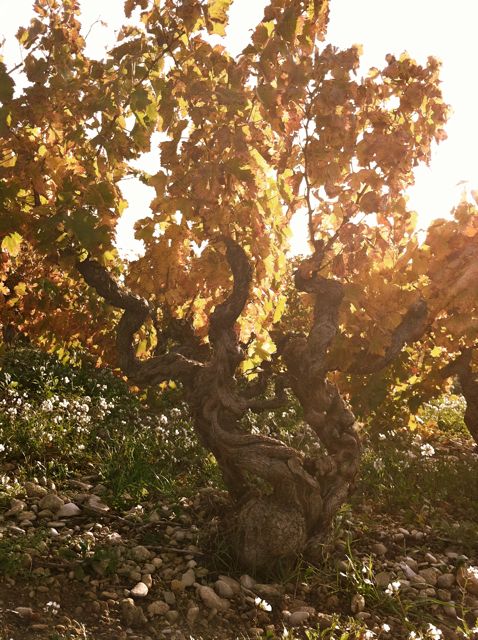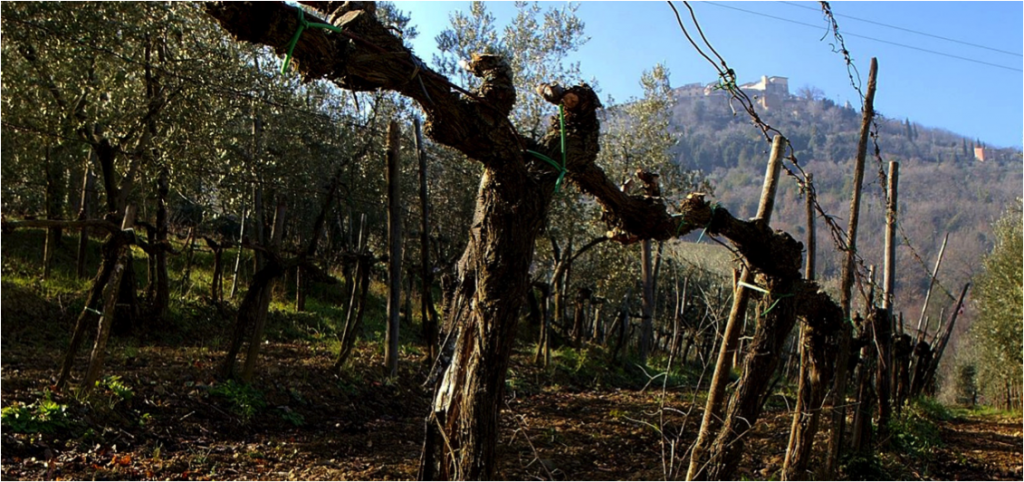I would like to write in a way that provokes thought without provoking people, and I would like to read writers who have the passion and intellectual clarity (and curiosity) to do the same.
I was reflecting on wine writing this week. Each week, in between drinking bottles of deathlessly beautiful wine, I try to squeeze in as much writing as can be humanly done and still be called coherent. Most of it is necessarily in the morning, fortified by strong espresso, and squeezed in before the day’s distractions begin to kick in. During the Real Wine Fair, I was penning (typing/pounding out) three blogs a week, one newsletter, one press release, updating the text list and writing a whole lot of tasting notes. Meanwhile, I was working on revisions for my book before releasing to the printers (go litel boke) and started plotting the outline of a new work. I can’t claim that more than a fraction of this was original, it is impossible to summon up the daemons of inspiration on a quotidian basis, press releases are hack work to say the least, tasting notes tend to drown in a quagmire of cliché and derivativeness. Yes, I want to avoid clichés like the plague. The only times my brain is pulsing with fresh-minted ideas are usually the most inopportune ones; when I am walking down the street, for example, or in the shower or just about to fall asleep, or even, in the most recent case, on an anti-Trump demo and rally in the centre of London. Something about shouting political slogans that causes the Huxleyian portals to swing open automatically and transcendently, and allow ideas to come pouring through.
I have hardly a second to read, more’s the pity, other than the odd Insta tap or Facebook solo. I suppose I subscribe to what Disraeli allegedly remarked that when I want to read a book, I write one. For book, read blog. I glance at the wine news stories in The Buyer, Harper’s Wine and Spirit and The Drinks Business, but more to check out the clickbait. Headlines about non-news stories are what gets me up in the afternoon. The majority of the pieces are to do with brands, celebrity drinks (!) and pointless trade and consumer surveys. If you pan diligently enough, you will find the odd nugget of non-disposable information.
Each week, in between drinking bottles of deathlessly beautiful wine, I try to squeeze in as much writing as can be humanly done and still be called coherent.
My go-to writers qua writers are Alice Feiring and Jamie Goode, because they have interesting and original views about wine. And healthy perspectives. Of the newer generation, Chrissie Rasmussen brings a combination of energy and focus to her writing and is also on the side of the wine angels (as far as I’m concerned).
The larger part of the wine-writing world is pretty conservative, however. Commentators and journalists seem to feel the need to slap themselves on the back. Everyone seems to wanting to back the next new wine trend. What’s new, what’s hot. What will people be talking about. Opinion and rehashed press releases have taken the place of news. Thoughtful opinion is editorially hacked to bits and glued back together to render it effectively meaningless. Articles in trade mags become a series of “hooks” and sound-bites.
Opinion and rehashed press releases have taken the place of news. Thoughtful opinion is editorially hacked to bits and glued back together to render it effectively meaningless.
As for blogs I am always attracted to an interesting verbal style as well as factual substance. Whereas new information is always welcome, writing about wine is an opportunity to uncork one’s creative writing juices, whether it is summoning up a sense of place, doing a word portrait of the personality of a vigneron, or describing how a wine makes you feel (without yanking out the fanciful fruit basket descriptors) or finding parallels between wine and other areas of our experience, or even developing an argument in an interesting intellectual fashion. A blog gives one the parole to expound at length and to find a style unfettered by editorial constraint. And if I were to make one plea, it would be about wit. When you share a bottle of beautiful wine with a person, it makes you positively convivial, and often witty if not wise. How often do we read a wine article that makes us smile?
For those whom the blog was a forum to advertise yourself by ringing up your authoritative wine scores, to tell the world where you had been in the world and relate the hospitality you had enjoyed, and to pap the most delicious looking dishes, then the growth of the popularity of natural wine might have presented a provocative challenge. Natural wines, like the proverbial good wine in the bible, needed no bush. Not needing (or receiving) the imprimatur of the wine commentariat, they became popular through the viral spread of social media.

Established writers saw the phenomenon as a fraud, others felt it was a flash-in-the-pan, and that the wines, their importers and the natural wine bars would soon be found out when consumers had a collective Damascene epiphany and realised that they had been hoodwinked, other commentators and critics, evidently insecure with the realisation that this was a substantial wine trend that completely passed them by and obviously they didn’t have their finger on the pulse, tried to ignore it, then realising that it couldn’t be ignored, offered their tuppence worth of disdain.
Over the years I have read endless ad hominem articles, and seen how straw man fallacies and false dichotomies are presented as inalienable wine truths. One may still come across the occasional sneering, sarky bully-blog, the existence of which will launch an inevitable twitter storm. Playing the man or woman is never going to lead to a remotely inclusive or constructive debate. Ultimately, negativity has a karmic outcome. It is also a complete waste of energy.
How often do we read a wine article that makes us smile?
Wine, like life, is more complicated than the caricatures it is made to live up to. In the past, I would rise to the challenge in print and try to unpick every generalisation that I deemed to be lazy. I will still vehemently support growers who are victimised by the sheer stupidity and unreasonable of bureaucratic authorities. Nowadays, however, I believe that writing is (mostly) about accentuating the positive and eliminating the negative. I want to celebrate the wines that I love to drink and the highlight the most cherishable aspects of the wine trade, including the people we enjoy spending time with, the fierce endeavours and brilliance of the growers, and detail the transformative power of wine. Goethe said “Life is too short to drink bad wine.” Life is also too short to be taking cheap shots against those you disagree with.
In short, I would like to write in a way that provokes thought without provoking people, and I would like to read writers who have the passion and intellectual clarity (and curiosity) to do the same. And with these words, I have finished my third blog in as many hours. What is it they say about London buses?



Hi,
good piece.. provoking thoughts without provoking people is the way I do, feel free to join me because there aren’t many around.
Andrea